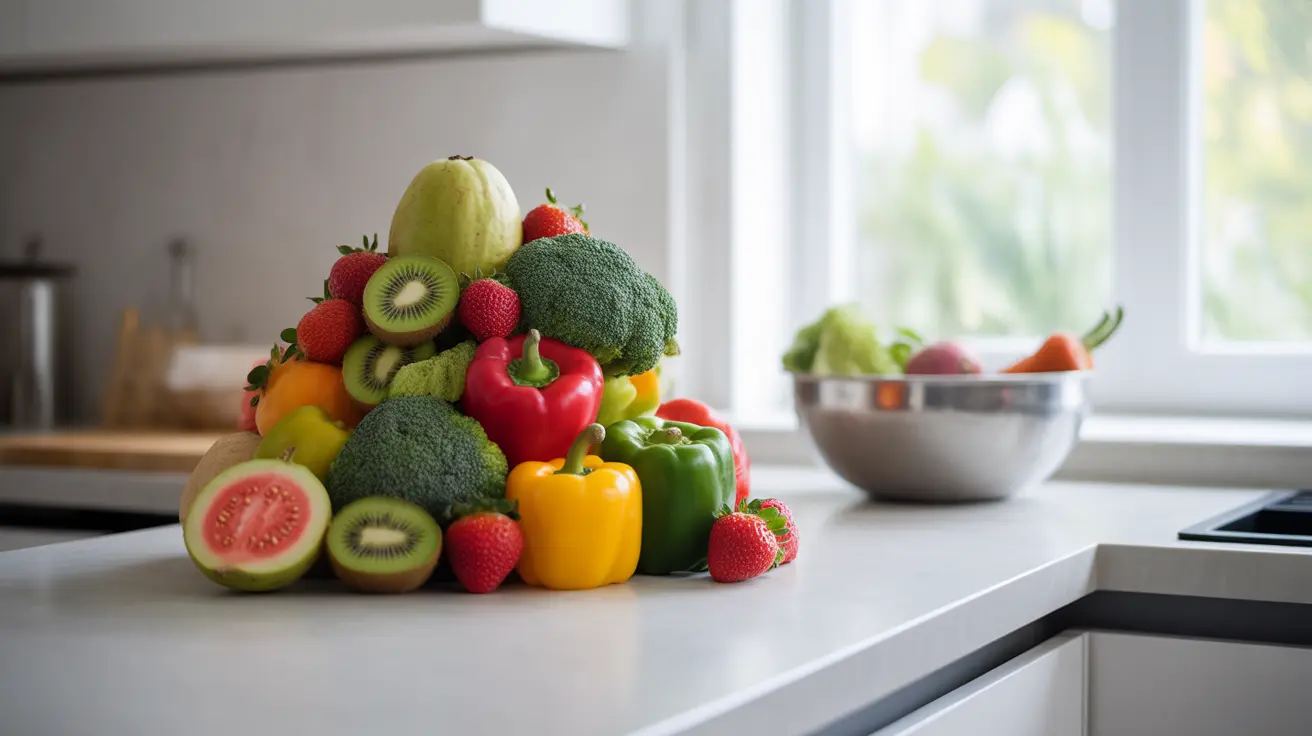Vitamin C is an essential nutrient that plays a crucial role in maintaining our overall health, from supporting immune function to promoting healthy skin. While oranges are widely known for their vitamin C content, numerous other foods pack an even more powerful nutritional punch when it comes to this vital nutrient.
Understanding which foods are rich in vitamin C and how to preserve their nutritional value can help you make informed dietary choices. Let's explore the best natural sources of vitamin C and learn how to incorporate them effectively into your daily diet.
Best Natural Sources of Vitamin C
Many fruits and vegetables contain significant amounts of vitamin C, often surpassing the vitamin C content found in oranges. Here are some top sources:
Fruits Rich in Vitamin C
- Guava (228.3 mg per 100g)
- Kiwi (92.7 mg per 100g)
- Strawberries (58.8 mg per 100g)
- Papaya (60.9 mg per 100g)
- Blackberries (21 mg per 100g)
Vegetables High in Vitamin C
- Bell peppers (especially red and yellow)
- Broccoli
- Brussels sprouts
- Cauliflower
- Leafy greens (particularly kale and spinach)
Daily Vitamin C Requirements and Food Sources
The recommended daily allowance (RDA) for vitamin C varies by age, gender, and life stage. For most adults, the requirements are:
- Adult men: 90 mg per day
- Adult women: 75 mg per day
- Pregnant women: 85 mg per day
- Smokers: Additional 35 mg per day
Meeting these requirements through food is relatively straightforward when incorporating a variety of vitamin C-rich foods into your daily meals.
Impact of Cooking on Vitamin C Content
Vitamin C is sensitive to heat, light, and air exposure. To maximize the vitamin C content in your foods, consider these preparation methods:
Best Cooking Practices
- Steam vegetables instead of boiling
- Cook for shorter periods
- Use minimal water when cooking
- Store fruits and vegetables properly
- Eat fresh produce quickly after purchase
Signs of Vitamin C Deficiency
Recognizing vitamin C deficiency early is important for preventing more serious health issues. Common symptoms include:
- Rough, bumpy skin
- Slow wound healing
- Bleeding gums
- Fatigue and irritability
- Joint pain
- Weak immune system
Health Benefits of Vitamin C-Rich Foods
Including adequate vitamin C in your diet offers numerous health advantages:
Immune System Support
- Enhances white blood cell production
- Strengthens barrier against pathogens
- Supports faster recovery from illness
Skin Health Benefits
- Promotes collagen production
- Helps protect against sun damage
- Supports wound healing
- Reduces signs of aging
Frequently Asked Questions
What are the best natural foods rich in vitamin C besides oranges?
The best natural sources include guava, bell peppers, kiwi, strawberries, papaya, broccoli, and Brussels sprouts. These foods often contain more vitamin C per serving than oranges.
How much vitamin C do adults need daily and which foods can help meet that requirement?
Adult men need 90 mg daily, while women need 75 mg. One cup of strawberries or a single red bell pepper can provide the full daily requirement. Combining various fruits and vegetables throughout the day easily meets these needs.
How does cooking affect the vitamin C content in fruits and vegetables?
Cooking can reduce vitamin C content, particularly with high heat and long cooking times. Steaming or quick-cooking methods help preserve more vitamin C than boiling or long-duration cooking.
What are the common symptoms of vitamin C deficiency and how can it be prevented with diet?
Common symptoms include rough skin, slow wound healing, bleeding gums, and fatigue. Prevention involves regularly consuming vitamin C-rich foods and properly storing and preparing fruits and vegetables.
Can eating more vitamin C-rich foods improve immune health and skin condition?
Yes, adequate vitamin C intake supports immune function by enhancing white blood cell production and promotes skin health through collagen synthesis. Regular consumption of vitamin C-rich foods can help maintain both immune and skin health.




